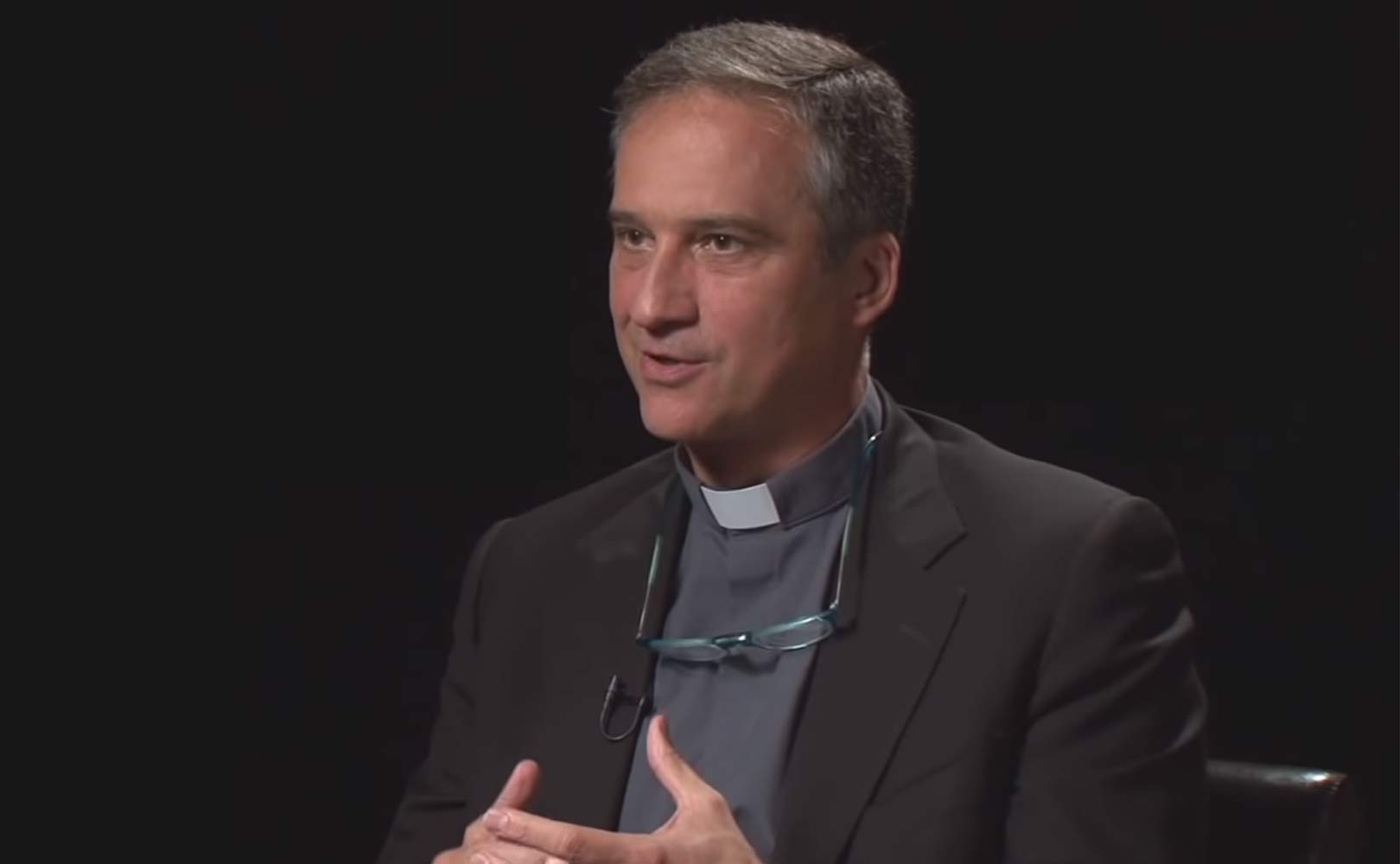Msgr. Dario Viganò, the disgraced Vatican apparatchik behind the 2018 Pope Benedict “Lettergate” scandal, has been given a new plum position today as vice chancellor of the Pontifical Academies for Sciences and Social Sciences.
In recent memory, Catholics hearing the name Viganò are likely to think primarily of Archbishop Carlo Maria Viganò, former Apostolic Nuncio to the United States, who one year ago this month released his unprecedented testimony on sexual abuse coverup at the highest reaches of the Catholic Church — with allegations that reach all the way to the present pope.
And for this distraction from his family name, Msgr. Dario Viganò has no doubt been grateful, after the disgrace he caused the Vatican that ultimately led to his resignation from his post.
For those in need of a refresher, the lesser Viganò was, in 2018, the Prefect of the Vatican Secretariat for Communications. During his tenure, he selectively omitted passages from a letter of Pope Emeritus Benedict XVI to make it appear he was offering unqualified praise for a new 11-volume set of books on the theology of Pope Francis, and then used that edited text — along with a digitally altered photo of the letter that obscured unwanted portions — as a marketing piece for the set.
In reality, though Benedict had praised both Francis and the initiative, he also said he did not have time to review it, and he outright questioned the inclusion of one of the authors, Professor Peter Hünermann, who, the former pope wrote, “during my pontificate had distinguished himself by leading anti-papal initiatives.”
I wrote a longer post-mortem on the entire affair and its many incremental developments here, for those who wish to catch up on the details.
The day after I published my final analysis, Msgr. Vigano resigned his position as Prefect of Vatican Communications, but was kept in a new role as an advisor to the group, which led me to ask:
The question remains open whether this is a resignation-in-name-only, leaving Viganò to continue to lead the Secretariat from his new position, or if he has really lost favor with the pope for his embarrassing handling of the Benedict letter.
Today, we have our answer.
Even the folks at the Francisphile publication Crux have taken note of the oddity.
In commentary on the decision, John Allen, Crux editor-in-chief, writes:
Under Argentine Bishop Marcelo Sánchez Sorondo, the Pontifical Academy for Social Sciences has become one of the Vatican’s primary beachheads for advancing the pro-immigrant, anti-“savage capitalism” vision of the world articulated by Pope Francis.
Because that vision is controversial, so’s the academy, which means it often needs some PR help. In response to that perceived lacuna, Francis made a move Saturday – and, to say the least, it’s a doozy.
“Many familiar with Viganò’s record,” Allen continues, “might be tempted to quip that’s a bit like making Barry Bonds your special advisor on steroid use in baseball, or akin to putting Bernie Madoff in charge of your financial reform.”
Allen says that in his new role, “Francis assigned Viganò special responsibility for communications.”
Allen notes that the appointment “is thus another triumph for what I’ve termed the Vatican’s ‘Ironic Employment Division.'”
Elise Harris, who offered the straight news coverage of the new appointment for Crux, writes:
The scandal, which prompted Viganò to resign, took place just weeks after the release of Francis’s 2018 message for the World Day of Communications, which was dedicated to condemning journalistic malpractice and “fake news.”
Francis tapped Italian layman Paolo Ruffini to take over as head of the communications department, but he kept Viganò on in the capacity of assessore, a type of advisory role which previously had not existed.
Six weeks after resigning, Viganò came under fire again after he gave a talk about fake news at a high-profile conference in Rome. During the April 28 panel, titled “Fake News and the Ethical Responsibilities of Media,” Viganò spoke on the importance of transparency in the media and said journalists who publish false or inaccurate information risk “poisoning” their readers, but said nothing about his own history.
Headed by Argentinian Archbishop Marcelo Sánchez Sorondo, the academies for sciences and social sciences have had their own issues with communication.
Not only are most of their initiatives low-profile with little publicity, but the academies have often come under fire for the type of personalities they invite to speak during conferences held at the Vatican, including several scientific experts consulted for Francis’s 2015 environmental encyclical, Laudato Si.
Among those personalities is Jeffrey Sachs, the director of the Earth Institute at Columbia University, who served as a special adviser to former United Nations Secretary-General Ban Ki-Moon, who is a member of the academy and is known to promote population control.
Truth be told, I hadn’t known Viganò had the temerity to rail against fake news after the debacle. The gall these men have is really something spectacular.
But with the highly controversial vision and mission of the Pontifical Academy for Social Sciences and their inexcusable associations under Sorondo’s leadership brought into clearer focus, it’s starting to make sense why they need a practiced cover-up artist to help out with communications.
As always with the Francis Vatican, honesty is only optional, the corrupt are rewarded if they’re loyal to the boss, and personnel is policy.
This post has been updated.


